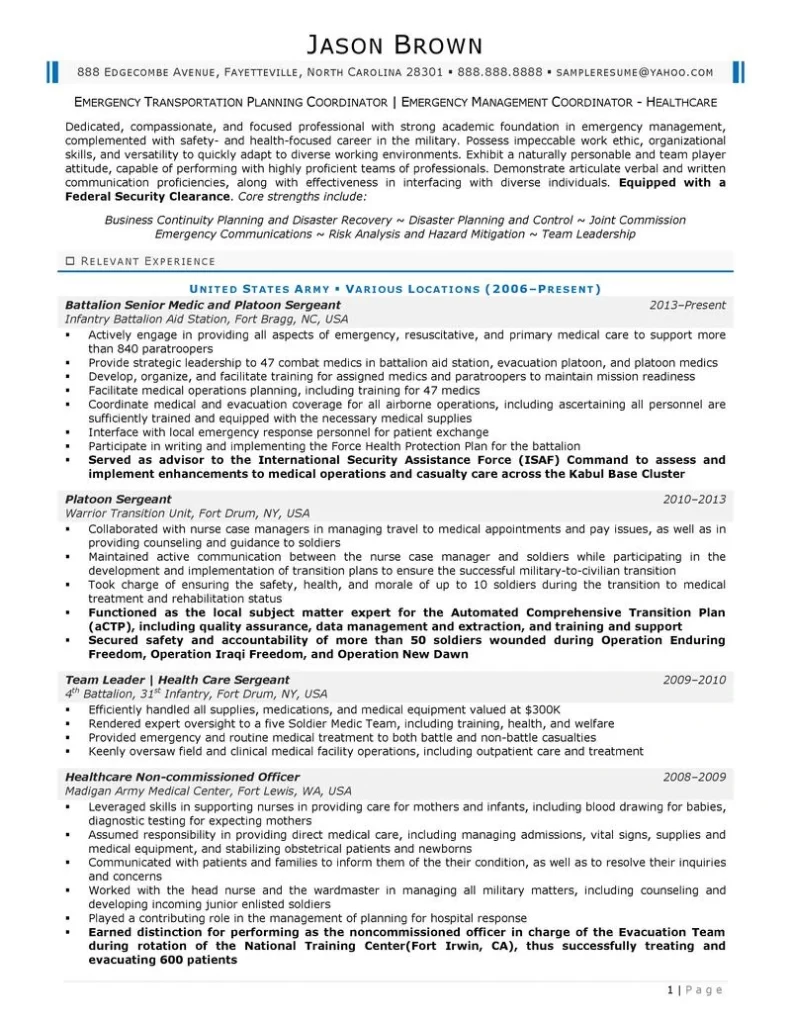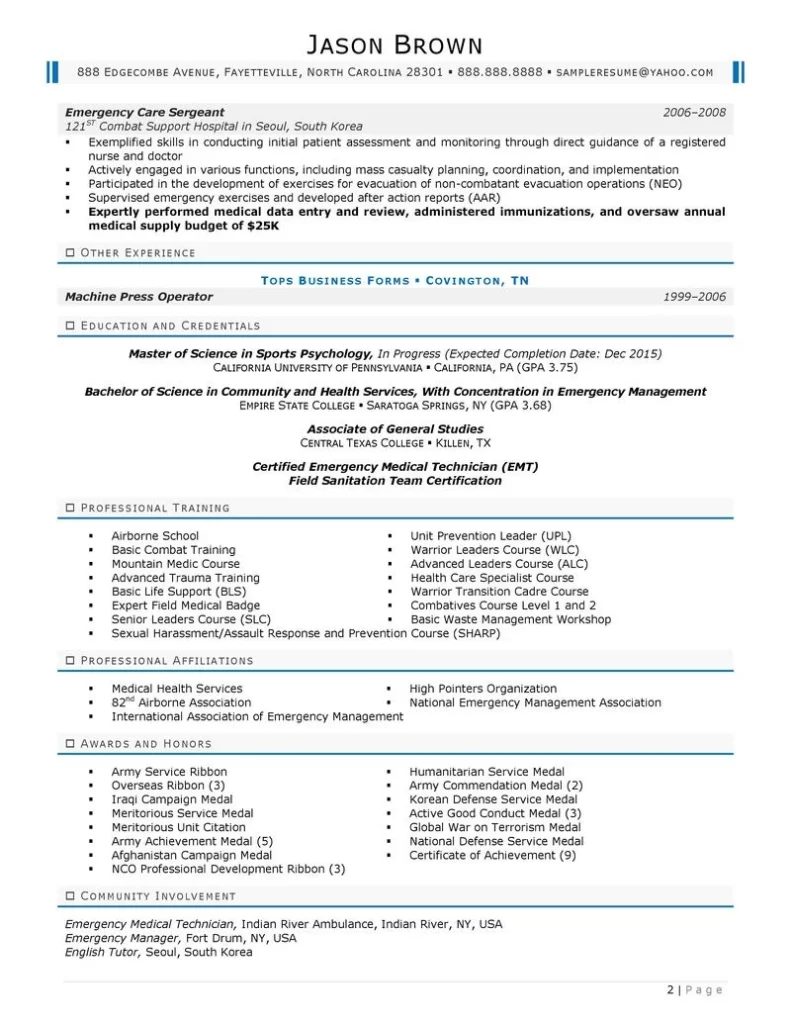A recent article of the US Search and Rescue Task Force says that there are about 10 tropical storms in the Atlantic Ocean within a year. Aside from storms, the world experiences fires, floods, and other disasters each day. Thus, we should prepare for these kinds of events. During these times, a proper game plan could save lives. So, we must approach disasters with readiness. This is what risk planners seek to give. They help people prepare for these events. Do you aspire to become a risk planner too? Land this job by heeding the tips and a emergency management resume example we’ve prepared for you.
Overview
The emergency management coordinators help with emergency management programs for various sectors. These include firms, communities, and schools. They design disaster preparedness training courses to teach people how to respond to these events. Also, they work with other agencies to ensure these plans succeed.
Likewise, they must have expert skills in public safety, law, and management. They must know how to build networks and earn support for their plans. Also, they must know how to work closely with a diverse audience.
The US Bureau of Labor and Statistics expects jobs like this to grow 8% from 2016 to 2026. The demand for this job will see a steady rise since firms are now more cautious with risk planning. If you’re looking for emergency manager resume samples and tips, then here’s the best emergency planner resume guide for you.
Emergency Management Resume Sample


Tips on Writing a Emergency Management Resume Example
What makes a great emergency management resume? Here’s a list of tips to help you:
- Look for online samples. There are lots of resume samples online. Look for tips on resume writing or hire resume writing services.
- Highlight your skills. Skills in various fields are a must. One must possess great planning skills. Thus, be sure to include skills like these because they serve as emergency management buzzwords that can impress hiring managers.
- Include your merits. Courses related to crisis management could lead you to this career. However, coursework in subjects like security and operations will also give you an edge. Thus, training courses apart from your college studies will help you advance in this career.
- Optimize keywords. Sprinkle keywords all over your resume. This will help you create a resume that would pass the Applicant Tracking System (ATS). Today, firms use ATS to screen resumes even before hiring managers scan it. Hence, be sure to search for related words online and write them in your copy.
- Keep it short and simple. As much as we want to tell our career journey in our resume, we should also take note that hiring managers only have a few minutes to scan through it. Thus, only include details that will grab their attention.
- Proofread. Always check for errors before sending out your resume. Read it more than once to check if there are grammar errors or misspelled words. It will also be helpful if you have friends who could read your copy.
Help people while honing your skills! Resume Professional Writers offers emergency management resume examples and helpful tips for job seekers like you. Aside from these, we also offer the best resume writing services for you. Looking for military emergency management resume, disaster relief resume, or emergency management intern resume? Contact us now for more details.








